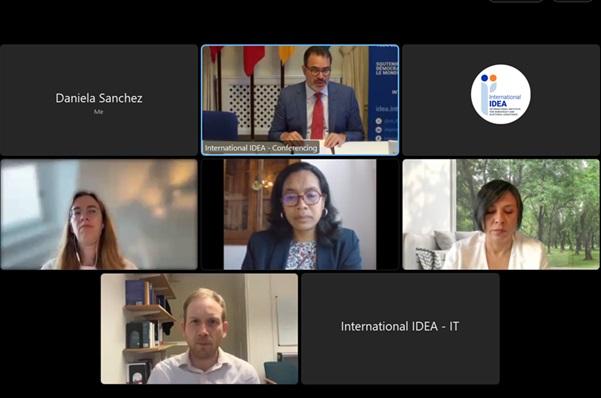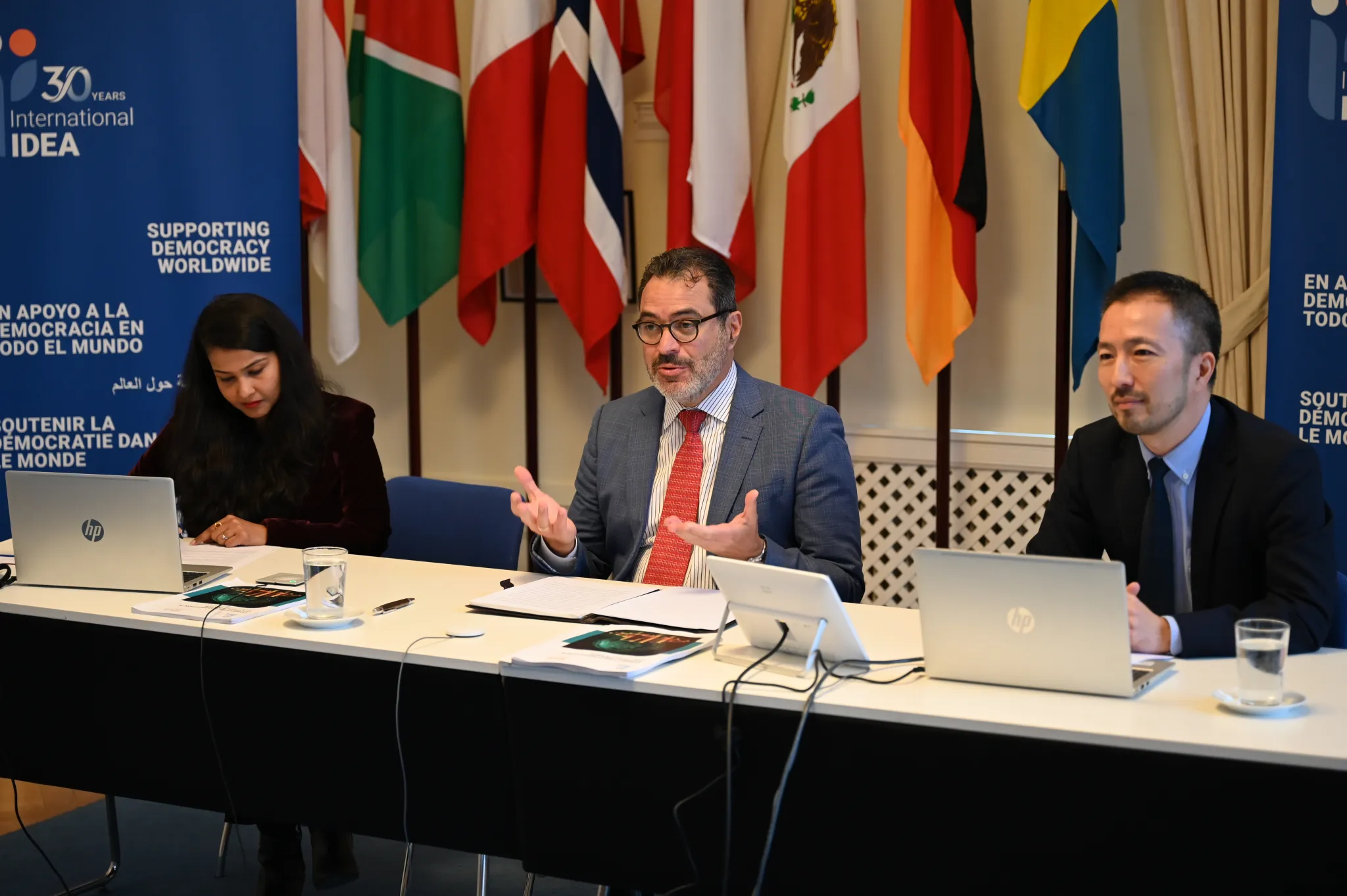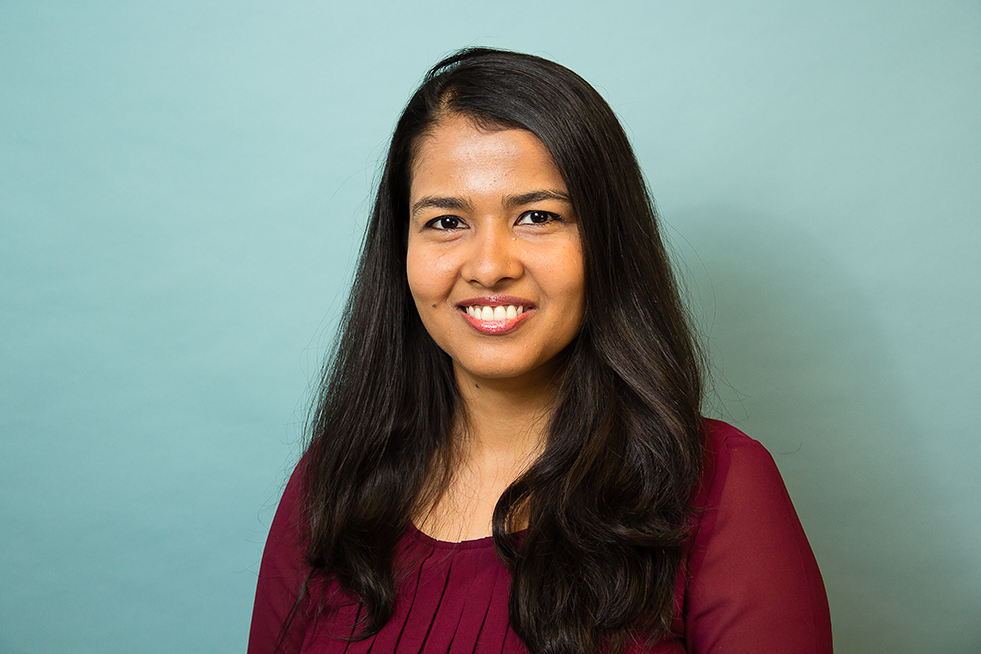
When money buys power: The unseen link between corruption and political finance

International IDEA released its latest report "Combatting Corruption in Political Finance: Global Trends, Challenges, and Solutions” on 23 April 2025. The launch event brought together over 100 policymakers, practitioners, researchers, and civil society representatives to explore the report’s key findings and chart a path toward greater political finance integrity. In a world where money’s role in politics is growing ever more complex — and too often opaque — this timely report examines how financial influence can distort democracy and what can be done to prevent it.
In 2014, the Operation Lava Jato exposed deep-seated collusion between Brazilian business and political elites. Among its many facets, Lava Jato revealed how construction firms formed a cartel to win Petrobras (Brazil’s state-owned oil company) contracts through bribes, siphoning off 3 per cent of their value into slush funds that financed political parties across the political spectrum. 10 years later, across the globe in Japan, the ruling party was rocked by a major political finance scandal involving the unreported campaign funds. Party members allegedly funneled donations into private slush funds between 2018 and 2022, triggering public outrage and the resignation of several high-ranking ministers.
Different countries, different periods, but a troubling familiar story— when political finance operates in the shadows, corruption walks right through the front door. At its best, political finance sustains democracy; at its worst, it can transform campaigns into commodities and elections into auctions, eroding the integrity of democratic processes. International IDEA’s latest report "Combatting Corruption in Political Finance: Global Trends, Challenges, and Solutions", delves into this complex relationship, emphasizing the need for critical balance between funding political activities and safeguarding democratic integrity.

The report was launched on 23rd of April 2025, convening over 100 researchers, experts, policymakers, practitioners and civil society representatives. Dr Kevin Casas-Zamora, Secretary General of International IDEA provided the opening remarks, followed by remarks by Ms Victoria von Knobloch, Senior Policy Advisor, Governance Division at the German Federal Ministry for Economic Cooperation and Development (BMZ). Dr Yukihiko Hamada, Programme Manager for Money in Politics at International IDEA presented the findings from the report, setting the scene for a panel discussion with Ms Norma Irene De La Cruz Magaña, Electoral Counselor at the National Electoral Institute (INE) of Mexico, Dr Ketakandriana Rafitoson, Vice Chair of the Board of Advisers at Transparency International and Dr Sam Power, Lecturer of Politics at University of Bristol, who discussed the findings of the report, shared insights from their work and explored pathways towards greater political finance integrity. The discussion emphasized the need for robust regulations to prevent corruption and undue influence, especially in the evolving digital landscape, the importance of transparency and accessible information, the value of global standards for political finance, and collaboration among various stakeholders to strengthen political finance oversight.
Political finance is at the core of good governance and trust in democracy whereas unregulated and uncontrolled political finance can be a significant hindrance to development ~ Viktoria von Knobl
Beyond Regulation: A Matter of Enforcement
While most democracies have campaign finance laws on the books — setting contribution limits, requiring disclosures, and outlining sanctions — these laws often fall short in practice. Loopholes, weak enforcement, and political interference undermine their effectiveness. Take donor disclosure: although legally mandated in many countries, real-time transparency is rare, and oversight bodies frequently lack the independence or resources to investigate powerful actors. Sanctions, when they exist, are seldom applied.
No country has a perfect system. There are always loopholes, whether it's unclear definitions unreasonable donation caps or blind spots in third party and digital spending. These gaps create room for corruption to thrive, often just below the surface of legality and enforcement challenges ~ Dr Yukihiko Hamada
On the international stage, there is no coherent framework guiding political finance regulation. Countries operate in isolation, creating fragmented systems vulnerable to exploitation — a kind of regulatory “loophole tourism.” The UN Convention against Corruption touches on political finance in Article 7.3, but its vague language offers little practical guidance and fails to account for modern threats like digital campaigning or foreign interference.
Click, Share, Influence: The Digital Dilemma in Political Finance
New technologies have further complicated the political finance landscape. As campaign activities like fundraising and advertising migrate into less regulated online spaces, tracing the sources and flows of money becomes increasingly difficult. The digital age has amplified the influence of third-party spending and coordinated online campaigns that operate independently of political parties, often in legal grey zones. Similarly, political actors are turning to data analytics firms and social media influencers, forming opaque financial relationships that evade public scrutiny and regulations. Meanwhile, traditional regulators still rely on outdated tools, leaving us with a perfect storm: a 21st-century political finance system regulated by 20th-century tools.
Artificial intelligence can help automate oversight and speed up transparency but must be combined with human judgment to maintain public trust ~ Dr Sam Power
Yet, alongside these risks, digitalization also holds immense potential to strengthen transparency and accountability in political finance. Online portals can enable real-time reporting and public disclosure, making information about political donations and spending more accessible and timelier than ever before. Advanced technologies — such as AI-powered tools and automated red flag systems — offer the ability to swiftly analyse vast datasets, flag suspicious transactions, and cross-check financial records, easing the burden on often under-resourced oversight bodies. Fully digital reporting platforms can streamline bureaucratic processes and reduce opportunities for error or manipulation. While these tools should complement, not replace, human oversight to preserve institutional trust, they represent a powerful force multiplier.
The Quiet Infiltration of Illicit Funds in Politics
Illicit funding from organized crime is increasingly warping the political landscape in many democracies, turning campaign finance into a gateway for corruption and criminal infiltration. Criminal networks exploit the high cost of campaigning and the scarcity of legitimate funding to embed themselves in politics, offering cash in exchange for protection, policy favors, and impunity once candidates are elected. From local officials issuing fraudulent IDs in Guatemala to zoning law manipulation in Brazil, political decisions become commodities traded for criminal gain. These relationships often go far beyond financial support—criminal groups use illicit campaign contributions to secure influence over police appointments, public contracts, and even judicial outcomes.
Organized crime often targets the local level; criminal syndicates don't need high-ranking officials on their payroll—they need local police officers and customs officials. This level is under-regulated, often overlooked, but it is the most vulnerable point in political systems, so it is essential to pay particular attention to the local level ~ Dr Kevin Casas-Zamora
Weak oversight, legal loopholes, and limited transparency create fertile ground for such practices to thrive, particularly in regions with fragile institutions or systemic corruption. As a result, democratic processes are compromised, laws are selectively enforced, and the public loses faith in the political establishment.
An urgent call for action
Improving political finance integrity requires a coordinated, multi-level effort to close regulatory loopholes, strengthen enforcement, and adapt to evolving risks like digitalization and foreign interference. Key reforms include updating legal frameworks to address underregulated areas such as third-party spending, anonymous donations, and the use of digital platforms for fundraising and advertising. Enforcement bodies must be empowered with adequate independence, resources, and legal mandates to carry out robust oversight.
Civil society plays a central — not just complementary — role in monitoring political finance, especially in countries where key safeguards are still lacking ~ Dr Ketakandriana Rafitoson
The integration of digital tools — such as AI-driven red flag systems, automated disclosure platforms, and real-time financial reporting — can enhance transparency and reduce the burden on electoral commissions. Importantly, inter-agency coordination must be scaled up: collaboration between governments, civil society organizations, oversight agencies, and the private tech sector is essential to build resilient political finance ecosystems that support democracy rather than distort it.
One of the reasons for our success is the strong collaboration we have with other government agencies — not just with fiscal and tax authorities, but also with financial regulatory bodies ~ Norma Irene De La Cruz Magaña
The report has been made possible with the support of Germany’s Federal Ministry for Economic Cooperation and Development (BMZ), and the Anti-Corruption and Integrity Sector Programme at the German Agency for International Cooperation (GIZ).




